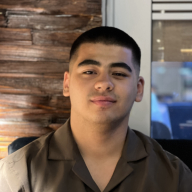Innovation Workshop for a Music Streaming App
Product: An online music streaming app (e.g., "SoundFlow").
Device Type: Mobile (iOS and Android).
Comprehensive Workshop Plan
Objective:
To collaboratively evaluate, refine, and prioritize new feature ideas for SoundFlow, ensuring alignment with user needs, trends in music streaming, and business goals.
Duration:
1 full day (8 hours), split into 4 sessions.
Participants:
- Design Team (4 members)
- Product Manager (1)
- Key Stakeholders (2)
- User Researcher (1)
Pre-Workshop Preparation:
- Collect Ideas: Ask team members to submit feature ideas beforehand using a shared template (Google Docs/Notion). Each idea should include:
- The problem it solves.
- The target user.
- Estimated value (user & business).
- Example ideas: “Collaborative playlists,” “AI-powered mood-based recommendations.”
- Research Synthesis: Compile insights from recent user feedback, competitor analysis (e.g., Spotify, Apple Music), and app analytics (e.g., session lengths, skipped songs).
- Materials Needed: Digital tools like Miro, Figma, or Google Meet for remote collaboration, along with templates for activities.
Workshop Agenda
Session 1: Kickoff & Context (45 mins)
Activities:
- Welcome and Goals (15 mins): Brief the team on the workshop’s purpose: to prioritize feature ideas and plan their implementation.
- Context Setting (30 mins): Present findings from:
- Analytics (e.g., which features users engage with the most/least).
- User pain points (e.g., difficulty discovering new music or customizing playlists).
- Competitor trends (e.g., Spotify Wrapped, real-time lyrics).
Outcome: A shared understanding of user needs, product goals, and the competitive landscape.
Session 2: Idea Sharing and Clustering (90 mins)
Activities:
- Individual Presentations (60 mins): Each participant presents their feature ideas (max 5 mins per idea).
- Example ideas:
- “Lyrics karaoke mode.”
- “Mood-based playlist generator using AI.”
- “A music quiz to discover songs interactively.”
- Clustering (30 mins): Group similar ideas into themes (e.g., "User Engagement," "Discovery," "Personalization").
Outcome: Categorized feature ideas by themes.
Session 3: Prioritization (90 mins)
Activities:
- Dot Voting (30 mins): Participants vote on ideas based on their potential impact (user satisfaction) and feasibility (development effort).
- Impact-Effort Matrix (60 mins): Plot ideas on a 2x2 matrix:
- Quick Wins: Features that are impactful and easy to develop.
- Strategic Bets: High-impact but resource-heavy features.
Outcome: A shortlist of 5-7 top-priority features.
Session 4: Strategic Planning (120 mins)
Activities:
- User Story Mapping (60 mins): For each prioritized feature, define user stories (e.g., "As a user, I want a karaoke mode to sing along with lyrics in real time").
- Roadmap Creation (60 mins): Break ideas into development phases (e.g., MVP, Phase 2, etc.) and align with sprint cycles.
Outcome: A strategic roadmap detailing phases for feature implementation.
Timeline
- 9:00 AM - 9:45 AM:
- Kickoff & Context
- Introduction and alignment on workshop goals.
- Presentation of analytics, user pain points, and competitor trends.
- Outcome: Shared understanding of goals and current landscape.
- 10:00 AM - 11:30 AM:
- Idea Sharing & Clustering
- Team members present their feature ideas (up to 5 minutes per idea).
- Group similar ideas into themes such as "User Engagement," "Discovery," and "Personalization."
- Outcome: Categorized feature ideas.
- 11:30 AM - 1:00 PM:
- Prioritization
- Conduct dot voting to evaluate ideas based on impact and feasibility.
- Use an Impact-Effort Matrix to prioritize ideas into categories: Quick Wins, Strategic Bets, etc.
- Outcome: A shortlist of 5-7 top-priority features.
- 2:00 PM - 4:00 PM:
- Strategic Planning
- Develop user stories for each prioritized feature using a user story mapping activity.
- Create a roadmap for feature implementation, breaking features into MVP and future phases.
- Outcome: User story maps and a strategic roadmap with defined timelines.
Example Features for Prioritization
- Mood-Based Playlists: AI generates playlists based on users’ moods (e.g., “Relaxing,” “Energetic”).
- Real-Time Lyrics Karaoke Mode: Users can sing along with synced lyrics in-app.
- Collaborative Playlists: Multiple users can create and edit playlists together.
- Interactive Music Quizzes: A game feature for users to discover new music.
- Listening Insights: Personalized stats on users’ music habits (similar to Spotify Wrapped).
Expected Final Deliverables
- A prioritized list of 5-7 features for SoundFlow.
- User story map for each feature, illustrating how it fits into user workflows.
- Feature roadmap with development phases and timelines.
- A summary of the workshop’s outcomes for stakeholder alignment.
Evaluation Criteria Alignment
- Content:
- Workshop activities are structured to identify high-value features.
- Aligns with user needs (e.g., personalization, engagement).
2. Scannability:
- Clear agenda and timelines for participants.
- Deliverables like the Impact-Effort Matrix and roadmap provide clarity.
3. Creativity:
- Focus on innovative features like karaoke mode or interactive music discovery.
- Collaborative clustering and prioritization methods.
4. Presentation:
- Organized flow with visual aids (e.g., Miro boards, digital templates).
- Clear, actionable outputs for follow-up work.
Reviews
1 review
Your workshop plan for the "SoundFlow" music streaming app is well-structured, thoughtfully designed, and effectively aligns with user needs, business goals, and trends in music streaming. Here's a detailed review:
Strengths:
- Logical Structure: Clear session breakdown from context setting to roadmap creation ensures a smooth flow.
- Collaborative Approach: Inclusion of diverse roles fosters well-rounded discussions.
- Outcome-Oriented: Deliverables like prioritized features and user story maps show focus on actionable results.
Areas for Improvement:
- Preparation Alignment: Clarify the format and expectations for pre-workshop submissions.
- Time Allocation: Limit idea presentations or adjust time to avoid rushing discussions.
- Facilitation Clarity: Provide specific examples or templates for clustering and roadmap activities.
- Next Steps: Outline follow-up plans for post-workshop alignment and implementation.
Elizabeth, your workshop plan is well-crafted and engaging, with minor adjustments to preparation, time management, and post-workshop clarity, it has great potential for success. Excellent work!
You might also like
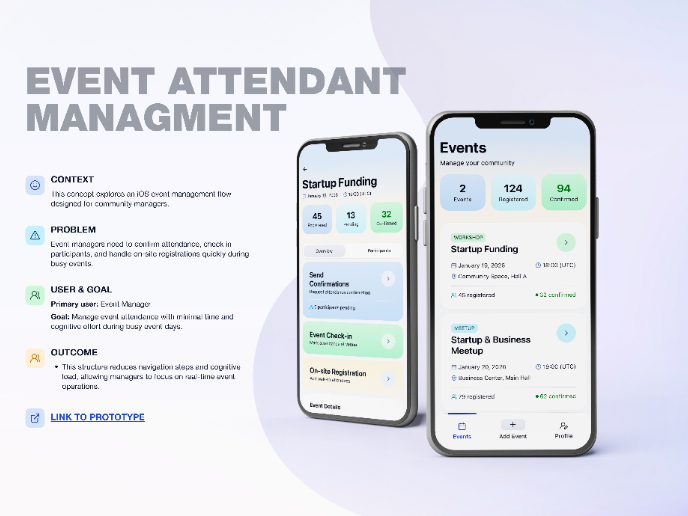
Events Managment App
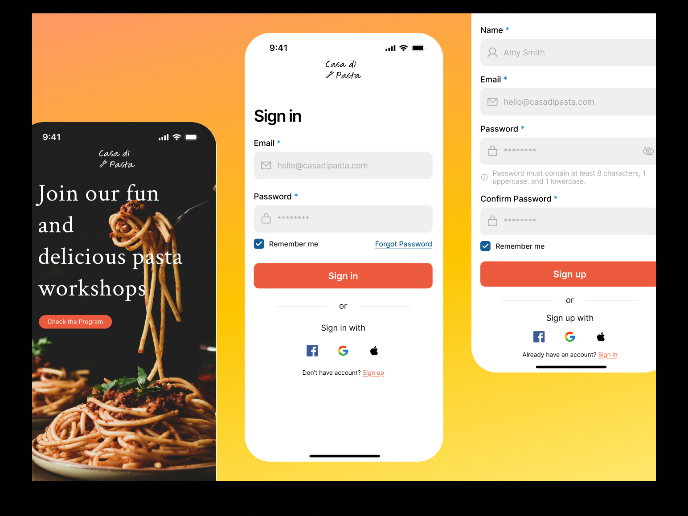
Mobile Onboarding: Casa di Pasta
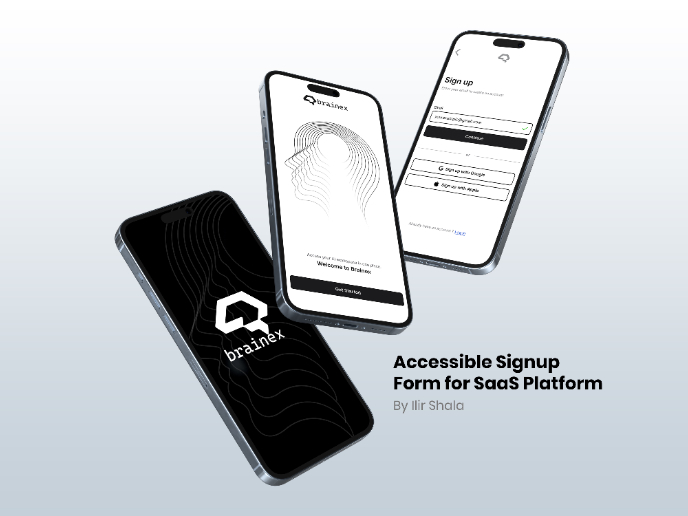
Accessible Signup & Login Experience — Brainex
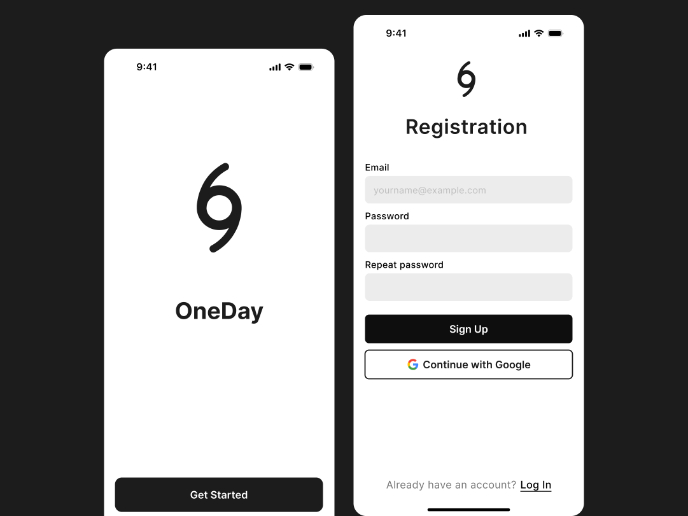
Accessible Signup Form
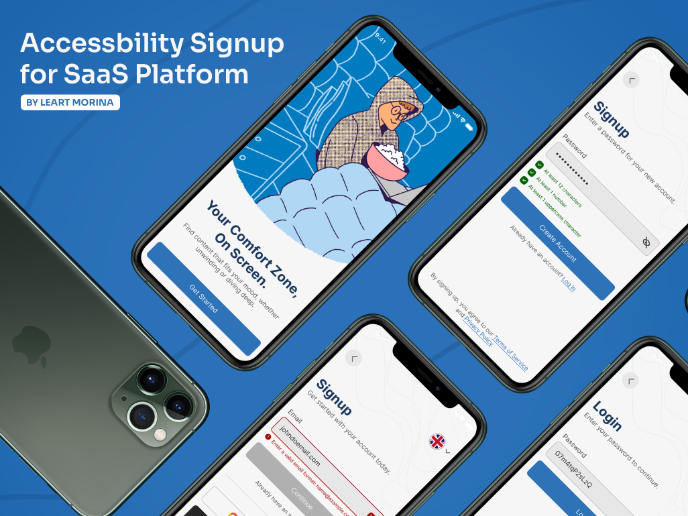
Accessible Signup Form
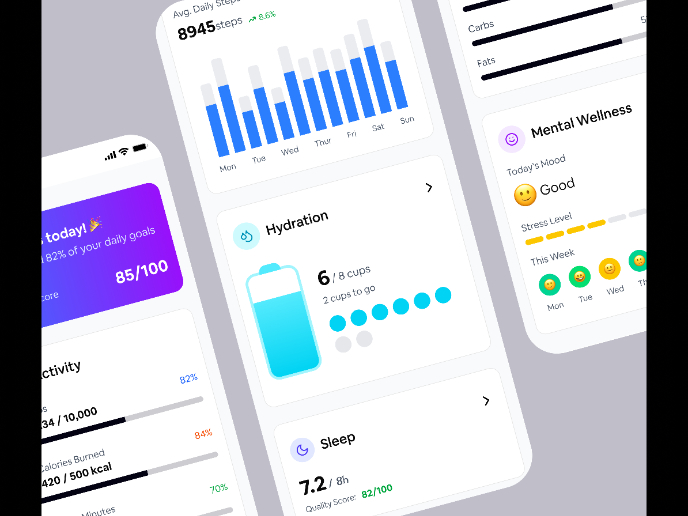
WellNest
Design Leadership Courses

UX Design Foundations

Introduction to Figma








